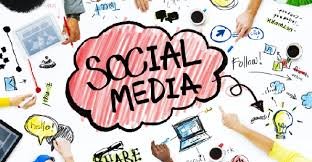What Are the Effects of Social Media on Youth?
The statistics all tell the same story: Social media are gaining in popularity every day.
The average time spent on social networks per day: 1.72 hours (in 2015).
The average number of hours a teenager spends online per week: 27 (2015).
Social media have become prominent parts of life for many young people today. Most people engage with social media without stopping to think what the effects are on our lives, whether positive or negative. Are we as a society becoming more concerned with Facebook "friends" than we are with the people we interact with face-to-face in our daily lives? What will the longterm effects of today's social media use be?
There are many positive aspects, but there are equally as many dangers that come with the use of sites such as Facebook, Twitter, LinkedIn, Pinterest, Google +, Tumblr, Instagram, gaming sites, and blogs. In order to make the right choices, we must dig in and research this topic thoroughly.
Politics:
Voter participation is increased. Facebook users said they are more likely to vote if they see that their online friends did. During the elections of 2010, users who visited Facebook more than once a day were 2.5 times more likely to attend a political rally or meeting and 43% more likely to say they will vote.
Social media facilitates political change: Online networks give social movements a quick, cheap method of disseminating information and mobilizing people.
Awareness/Being Informed:
27.8% of Americans get their news online. (28.8% get it from newspapers and 18.8% from radio.)
Information spreads faster online than any other media. More than 50% learn about breaking news on social media.
Social networking provides academic research to everyone with online access, allowing people access to previously unavailable resources.
Social media sites inform and empower individuals to change themselves and their communities.
Social Benefits:
Social media allow people to communicate with friends and this increased online communication strengthens those relationships. 52% of online teens say social media have helped their friendships. 88% say being online helps them stay in touch with friends they don't see regularly.
People make new friends. 57% online teens report making new friends online.
Job Opportunities:
Great for professionals for marketing, connecting, and finding business opportunities.
Employers find employees and unemployed find work. 89% of job recruiters have hired via LinkedIn, 26% via Facebook, and 15% via Twitter.
Social media sites have created thousands of jobs and new avenues of income.
Lack of Privacy:
People, especially the young, are often too open and public with personal information when online. Most don't read privacy policies and may be unaware that their information may be used by third parties, like advertisers, insurance companies, and the IRS. 21% of teens believe it is safe and harmless to post personal information, including photos.
Exposure to corporate and governmental intrusions. The US Justice Department intercepts thousands of pieces of information from email and social networking activity per year.
The IRS trains agents to scan social media for information that can help them resolve taxpayer cases.
Insurance companies use information gleaned from social media, as well. If you have "liked" a medical-related page or a post about a health condition, that information is sometimes used by insurance companies to determine eligibility and raise rates.
Online advertising policies are an invasion of privacy. If you "like" a brand, you’re giving that company access to your personal information.
Source: here

